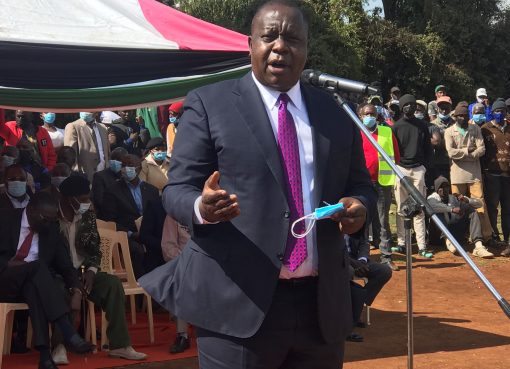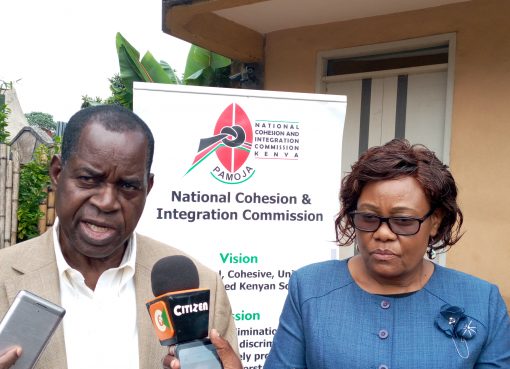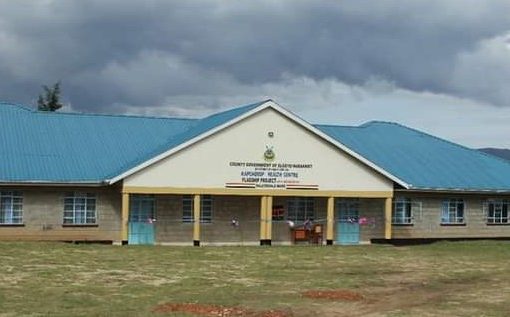State Department for Public Service is developing a Skills Master Plan for the Public Service in order to align training and capacity building to the national development priorities and agenda.
To further strengthen the capacity and effectiveness of Government institutions, the State Department has been supporting Public Service institutions to align their organisational structures and staffing to their mandates thereby eliminating duplication and overlaps in functions and resources.
Speaking during a seminar for HR directors and Deputy Directors in the Public Service held in collaboration with the Institute of Human Resource Management (IHRM) at Sarova Whitesands, Mombasa, State Department for Public Service Principal Secretary Amos Gathecha said that Inclusive Leadership is a vital component of effective leadership in the Public Service as it involves creating a culture of respect, inclusivity and empathy towards all employees.
This he said, emphasises on the theme of the seminar ‘Inclusive leadership in Disruptive times; Empowering Public Service HR for enhanced Productivity and Transformation.’
“Inclusive leaders recognise and value the diverse perspectives and experiences that each employee brings to the work place. By embracing and leveraging on employee differences and uniqueness, HR leaders are able to make informed decisions, foster innovation and enhance productivity and transformation in the Public Service,” Gathecha said.
He noted that HR leaders must be able to identify and address the gaps in their workforce, develop effective learning and development programmes, and provide ongoing support to employees.
The PS assured that the Government continues to build the capacity of human capital by according public servants training and development opportunities.
In addition, the State Department is in the process of harmonising designated hardship areas and payment of hardship allowance across the Public Service.
Executive Director, IHRM, Quresha Abdullahi said that empowering human resources ignites a chain reaction of positive change, where enhanced productivity becomes the norm, innovation flourishes, and the public sector becomes a beacon of excellence.
Abdullahi said that in order to achieve this empowerment, the sector must focus on several key areas including investing in continuous learning and professional development and prioritising building a strong organisational culture that promotes transparency, accountability, and integrity.
“In addition to our responsibility to empower human resources in the public sector, we have a crucial role to play in implementing the Government agenda as stipulated in its visionary plan that outlines the path to our nation’s prosperity,” Abdullahi said.
“By aligning our strategies, policies, and actions with the Government objectives, we can contribute significantly to the realisation of our nation’s vision for a prosperous and transformed Kenya,” Abdullahi added.
The Chairman, IHRM, Odero Phillip expressed his gratitude to the Ministry of Public Service for the continued support the institute has received and the HR profession at large.
He said that the seminar was an opportunity to sensitise the top HR leaders in the Civil service in preparation for the 1st ever Annual National Conference of Civil Servants.
The Annual National Conference of Civil Servants will bring together all those in the public sector; Ministries, Parastatals and State Corporations, County Governments and Constitutional Commissions for national deliberations on how the public sector human resource can contribute towards the attainment of a national vision on Human Resource Development.
He acknowledged the theme of the meeting noting that it recognises the unique perspectives and contributions of individuals from different backgrounds and experiences and leverages those differences to create a more innovative and productive workforce.
“In disruptive times, such as those brought on by technological advances, changing economic conditions, and global pandemics, inclusive leadership becomes even more critical because it allows organisations to adapt and thrive in uncertain environments by fostering agility, resilience, and creativity.
In the public service, inclusive leadership is especially important because of the diverse range of stakeholders it serves.
He concluded that Public service organisations must be responsive to the needs of citizens, policymakers, and other stakeholders while also promoting a culture of equity and inclusion within their own workforce.
By Fatma Said





